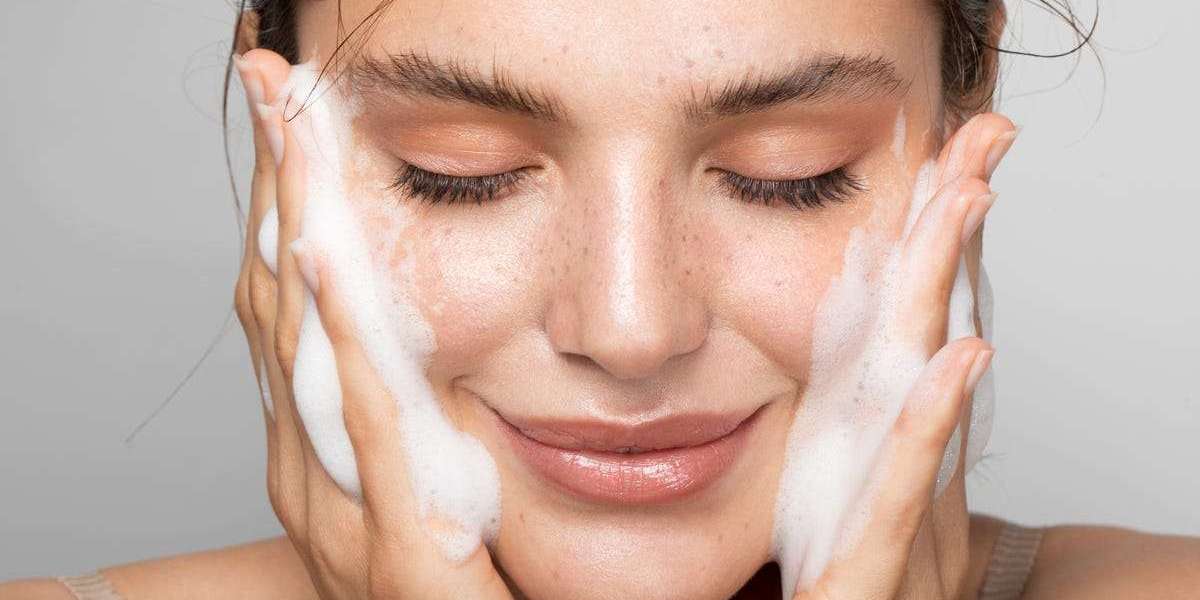In 2025, skincare has moved beyond surface-level promises to embrace deeper values. Today’s beauty consumers demand more than just results—they want safety, sustainability, and transparency. This shift has given rise to what’s now widely known as conscious skincare. But what exactly does clean beauty mean in today’s context, and how has it evolved? Let's take a closer look at what defines clean, conscious skincare in 2025 and why it's more than just a trend—it’s a movement.
The clean beauty space continues to evolve with the support of science-backed formulations and minimalist labels. As consumers grow increasingly educated about ingredients, they’re turning toward smarter products that are free from harsh chemicals but rich in performance. In particular, products like the salicylic acid face cleanser have become popular for offering effective results with a clear, honest ingredient list—making them a go-to in many clean beauty routines.
Transparency as the New Luxury
Gone are the days when beauty brands could hide behind vague claims or flashy marketing. In 2025, transparency is a cornerstone of conscious skincare. Modern consumers expect to know what’s in their products and where those ingredients come from. This means full ingredient disclosure, ethical sourcing, and clear labeling practices.
Clean beauty brands are now required to publish not just ingredient lists, but also the function of each ingredient, its origin (natural or lab-made), and whether it's biodegradable, vegan, or cruelty-free. QR codes on packaging offer instant access to detailed sourcing information, while blockchain technology is being used to verify supply chain integrity.
This level of openness has become a competitive advantage, helping trustworthy brands stand out in a saturated market.
Skin Health First, Trends Second
Another major evolution is the shift in focus from trends to long-term skin health. Consumers no longer want “instant glow” products that deliver short-lived results. Instead, they prioritize formulations that support the skin barrier, reduce inflammation, and improve resilience over time.
Dermatologist-approved ingredients like niacinamide, ceramides, squalane, and probiotics are leading the charge in clean beauty. These ingredients promote skin health while being gentle, non-toxic, and compatible with even the most sensitive skin types.
Even the application of active ingredients has changed. Rather than loading formulas with high concentrations of a single trending ingredient, brands are now embracing balanced, synergistic blends that work in harmony with the skin’s natural processes.
Sustainability Is No Longer Optional
In 2025, sustainability is a fundamental pillar of clean beauty. From biodegradable packaging to waterless formulations and refillable containers, brands are going all-in on eco-conscious design. Consumers are increasingly aware of the environmental impact of their beauty routines, and they expect the brands they support to reflect those values.
Waterless skincare, in particular, has seen a dramatic rise. These concentrated products not only reduce water consumption during production, but also minimize packaging waste. They’re also more travel-friendly and offer longer shelf lives—further reducing the carbon footprint.
Brands are also working with local farmers, ethical co-ops, and regenerative agriculture to source raw ingredients sustainably. This approach benefits not just the skin, but the planet as well.
Tech-Powered Clean Beauty
One of the most exciting aspects of clean beauty in 2025 is the integration of technology. Artificial intelligence, augmented reality, and smart diagnostic tools are transforming the skincare experience. These innovations help consumers choose clean products tailored to their unique skin needs—without ever stepping into a store.
Apps can now scan a product’s barcode to verify if it meets specific clean beauty standards, such as being paraben-free, fragrance-free, or cruelty-free. Personalized skincare quizzes powered by AI take into account lifestyle, climate, diet, and even genetics to recommend the most effective and safest products for your skin type.
Smart mirrors, skin scanners, and even wearable patches are also making it easier to monitor progress and adjust skincare routines based on real-time data. This ensures that every step of your clean beauty journey is based on results, not guesswork.
Clean Beauty Goes Beyond Skin
What started as a movement for safer skincare has now expanded into a broader wellness philosophy. Conscious skincare today includes mindfulness, mental well-being, and even ethical labor practices. Consumers want to know that their favorite products are made not only with good ingredients but also with good intentions.
This means supporting brands that treat their workers fairly, invest in local communities, and avoid animal testing. It also means buying fewer, better products instead of stockpiling the latest TikTok trends. The shift toward intentional consumption is making beauty more meaningful—and less wasteful.
Additionally, clean beauty now aligns closely with inner wellness. Adaptogens, mood-enhancing botanicals, and aromatherapy are being infused into products, reflecting the understanding that skin and mind are deeply connected. A face mask is no longer just skincare—it’s self-care.
The Future Is Conscious
As we look ahead, it’s clear that conscious skincare isn’t just a buzzword or a passing phase. It’s a redefinition of what beauty means in a world that values health, ethics, and environmental responsibility. The clean beauty consumer of 2025 is smart, discerning, and driven by values—not just results.
This new era is pushing brands to be more accountable and transparent than ever before. But it’s also empowering consumers to take charge of their skincare with confidence and purpose. Whether it’s choosing a cleanser free from sulfates, a moisturizer packaged in a compostable jar, or a serum made with ethical labor practices in mind, each decision reflects a deeper awareness of the world and our place in it.
Ultimately, conscious skincare is about creating beauty that benefits everyone—from your skin to the planet. And in 2025, that kind of beauty is finally within reach.







